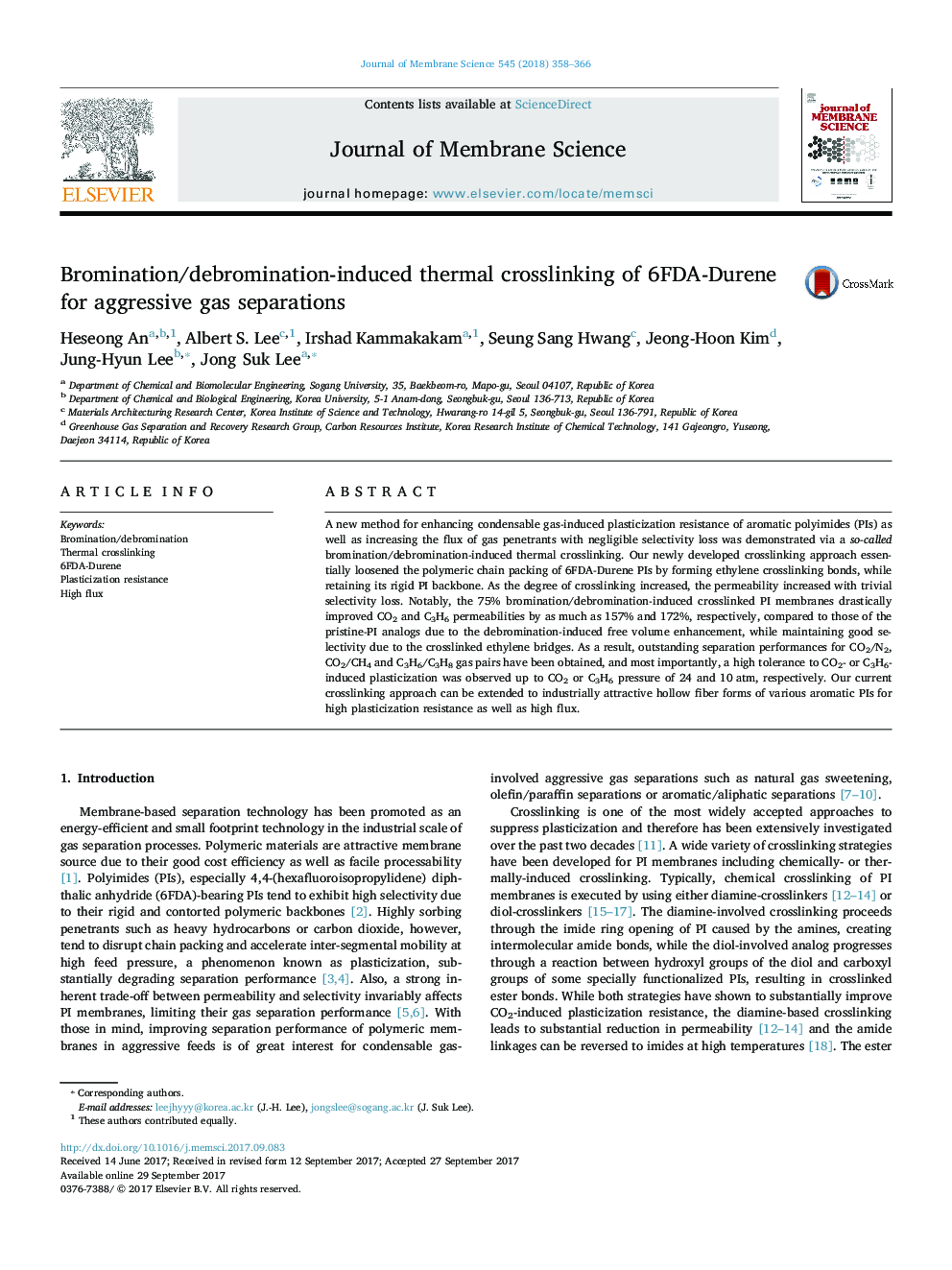| Article ID | Journal | Published Year | Pages | File Type |
|---|---|---|---|---|
| 4988605 | Journal of Membrane Science | 2018 | 9 Pages |
â¢A series of regioselectively brominated 6FDA-Durene polyimides (Br-PI) were prepared.â¢Thermal treatment of Br-PIs led to a debromination-induced crosslinking (X-PIs).â¢X-PIs significantly enhanced gas permeabilities with negligible selectivity loss.â¢X-PIs substantially improved plasticization resistance towards condensable gases.
A new method for enhancing condensable gas-induced plasticization resistance of aromatic polyimides (PIs) as well as increasing the flux of gas penetrants with negligible selectivity loss was demonstrated via a so-called bromination/debromination-induced thermal crosslinking. Our newly developed crosslinking approach essentially loosened the polymeric chain packing of 6FDA-Durene PIs by forming ethylene crosslinking bonds, while retaining its rigid PI backbone. As the degree of crosslinking increased, the permeability increased with trivial selectivity loss. Notably, the 75% bromination/debromination-induced crosslinked PI membranes drastically improved CO2 and C3H6 permeabilities by as much as 157% and 172%, respectively, compared to those of the pristine-PI analogs due to the debromination-induced free volume enhancement, while maintaining good selectivity due to the crosslinked ethylene bridges. As a result, outstanding separation performances for CO2/N2, CO2/CH4 and C3H6/C3H8 gas pairs have been obtained, and most importantly, a high tolerance to CO2- or C3H6-induced plasticization was observed up to CO2 or C3H6 pressure of 24 and 10Â atm, respectively. Our current crosslinking approach can be extended to industrially attractive hollow fiber forms of various aromatic PIs for high plasticization resistance as well as high flux.
Graphical abstractDownload high-res image (200KB)Download full-size image
